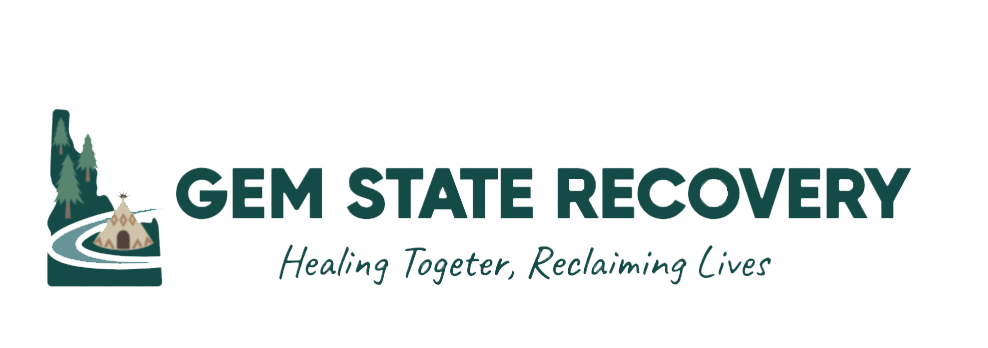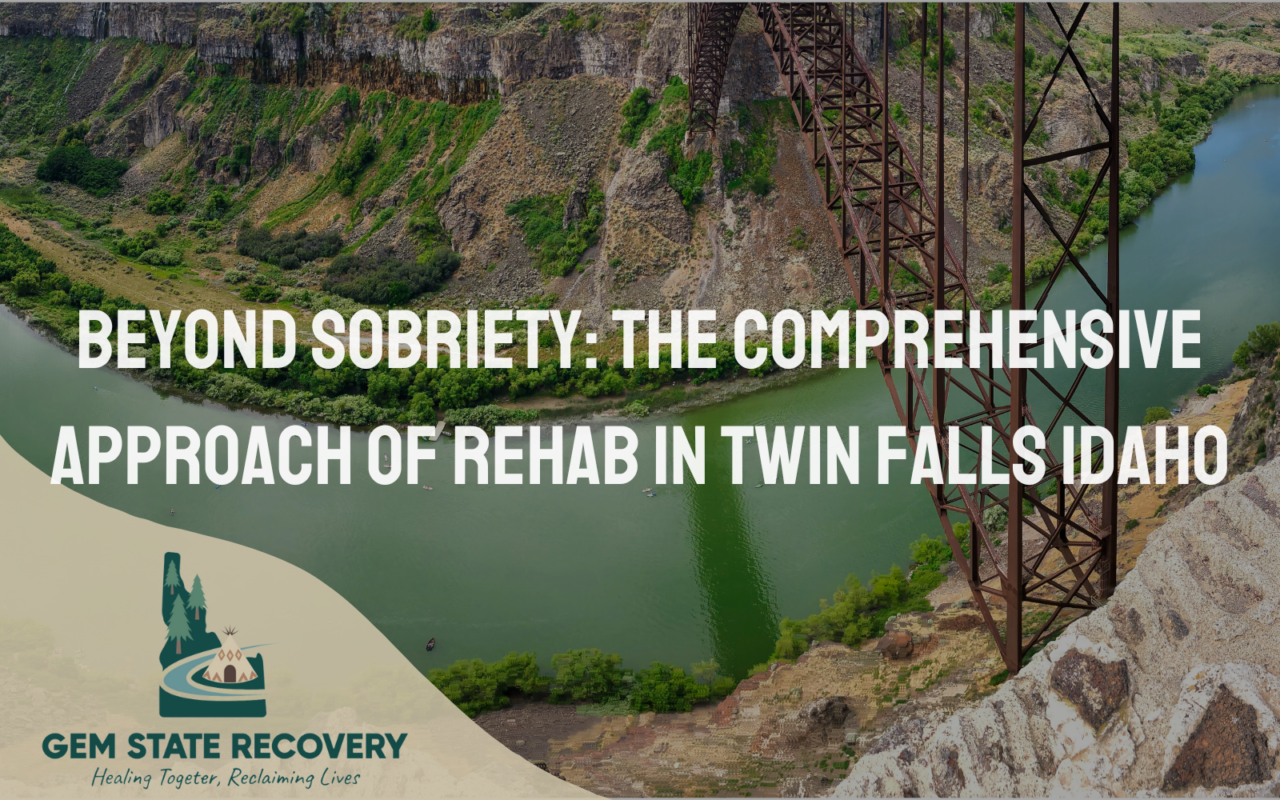Struggling with addiction is far from a solitary battle; it impacts not only the individual but also their loved ones and community. In today’s fast-paced world, substance abuse has become an alarming epidemic that requires immediate attention. This blog post explores the comprehensive approach of rehab in Twin Falls Idaho—highlighting its benefits and why it might just be the key to unlocking a healthier, happier future for those grappling with addiction.
Growing Issue of Substance Abuse
The United States has been witnessing a troubling rise in substance abuse and addiction rates. According to the National Institute on Drug Abuse, nearly 20 million Americans aged 12 and older had a substance use disorder in 2019. This surge has wreaked havoc on families, strained healthcare systems, and led to significant economic burdens. It’s more critical than ever to understand the importance of rehabilitation centers in addressing this crisis.
Rehabilitation centers provide a structured, supportive environment essential for overcoming addiction. They offer a safe space for individuals to detox, receive therapy, and rebuild their lives. Rehabilitation doesn’t just transform the lives of individuals; it has a ripple effect, rejuvenating families and communities that have been fractured by addiction.
Understanding Addiction
Definition and Forms of Addiction
Addiction is a chronic disease characterized by the compulsive use of substances despite harmful consequences. It takes various forms, including alcohol addiction, prescription drug abuse, illegal drug addiction, and even behavioral addictions like gambling. Each type presents unique challenges and requires specialized treatment approaches.
Alcohol addiction, for instance, can lead to liver damage, cardiovascular issues, and neurological problems. Prescription drug abuse often involves painkillers or sedatives, which can result in physical dependence and severe withdrawal symptoms. Illegal drug addiction encompasses substances like heroin and cocaine, which can cause significant harm to both physical and mental health. Behavioral addictions, such as gambling, can lead to financial ruin, strained relationships, and psychological distress.
Effective treatment, such as rehab in Twin Falls Idaho, requires a multifaceted approach, often combining medical intervention, psychological support, and social services to address the various aspects of addiction and aid in long-term recovery.
Impact on Brain and Behavior
Addiction fundamentally alters brain chemistry. Substances hijack the brain’s reward system, releasing excessive amounts of dopamine and creating a sense of euphoria. Over time, the brain becomes reliant on these substances to feel normal, leading to compulsive behavior and impaired decision-making. Understanding this neurological basis is crucial for developing effective treatment plans.
Signs and Symptoms
Addiction manifests in multiple ways, including physical, emotional, and behavioral indicators. Physical signs can include changes in appearance, weight loss, and poor hygiene. Emotionally, addiction might lead to mood swings, anxiety, and depression. Behaviorally, individuals may exhibit impulsivity, secrecy, and neglect of responsibilities. Recognizing these symptoms is the first step towards seeking help.
Types of Rehab
Inpatient Rehab
Benefits of 24/7 Care
Inpatient rehab in Twin Falls Idaho offers continuous medical supervision and a structured environment crucial for early recovery stages. This 24/7 care ensures that patients receive immediate medical attention if needed and provides a stable setting free from external triggers. The constant presence of healthcare professionals not only addresses medical emergencies but also offers emotional support, which is essential for maintaining motivation and commitment during recovery.
Structured Treatment Programs
Inpatient programs are meticulously structured to include therapy sessions, group activities, and educational workshops. This schedule helps patients develop a routine and focus entirely on their recovery without distractions. Therapy sessions may involve individual counseling, cognitive-behavioral therapy, or family therapy, allowing for a comprehensive approach to the patient’s mental health. Group activities foster a sense of community and shared experiences, which can be incredibly uplifting. Educational workshops provide valuable knowledge about addiction, coping strategies, and life skills, empowering patients to make informed decisions post-rehab.
Outpatient Rehab
Flexibility and Accessibility
Outpatient rehab in Twin Falls Idaho allows individuals to maintain their work or family commitments while receiving treatment. This flexibility makes it an attractive option for those who cannot take extended time off from their daily lives. Patients can attend therapy sessions, medical appointments, and support groups without the need to live at the treatment facility, providing them with a sense of normalcy and continuity in their everyday routines.
Types of Outpatient Programs
Outpatient programs vary in intensity and structure to cater to different needs and circumstances. Partial hospitalization programs (PHP) offer comprehensive care similar to inpatient rehab, including daily therapy sessions, medical monitoring, and support groups, but allow patients to return home at night. This approach ensures that patients receive intensive treatment while maintaining some independence.
Intensive outpatient programs (IOP) provide a middle ground with several sessions per week, often scheduled around work or school hours. These programs offer a mix of individual therapy, group therapy, and other support services, making them suitable for individuals who need substantial support but still have significant outside commitments.
Standard outpatient programs (OP) are the least intensive, offering therapy and support groups on a less frequent basis. These programs typically consist of weekly or bi-weekly sessions and are ideal for those who have progressed in their recovery journey and require ongoing support to maintain their sobriety.
The Comprehensive Approach of Rehab in Twin Falls Idaho
Location
Serene Environment
Twin Falls, Idaho, is renowned for its natural beauty, offering a peaceful, scenic setting ideal for recovery. The serene environment provides a tranquil backdrop, allowing patients to focus on their healing without the distractions of urban life.
Healing Benefits of Nature
Research supports the therapeutic benefits of nature in the recovery process. Outdoor activities like hiking, fishing, and yoga in nature can significantly reduce stress, improve mood, and enhance overall well-being.
Customized Treatment Plans
Importance of Individualization
Every individual’s addiction story is unique, which is why personalized treatment plans are crucial. Customized plans ensure that each patient’s specific needs, circumstances, and underlying issues are addressed, significantly increasing the likelihood of successful recovery. By taking into account factors such as mental health, support systems, and personal history, individualized treatment can offer more comprehensive and effective solutions. For those seeking rehab in Twin Falls Idaho, these personalized approaches are highly beneficial.
Tailoring Therapies
Treatment plans for rehab in Twin Falls Idaho are tailored through comprehensive assessments, goal setting, and continuous monitoring. These assessments may include psychological evaluations, medical exams, and discussions about the patient’s history and lifestyle. Goal setting involves collaborating with the patient to establish realistic and attainable objectives that guide the treatment process. Continuous monitoring allows for regular adjustments as patients progress or encounter new challenges, ensuring that they receive the most effective care at every stage of their recovery journey. This individualized approach creates a dynamic and responsive treatment plan that evolves with the patient’s needs.
Evidence-Based Therapies
Cognitive-Behavioral Therapy (CBT)
Cognitive-Behavioral Therapy (CBT) is a well-established and effective method for changing negative thought patterns and behaviors. Through structured sessions, it helps patients identify and understand the underlying causes of their addiction. By developing coping strategies and problem-solving skills, CBT aims to prevent relapse and promote long-term recovery. Therapists at rehab in Twin Falls Idaho work closely with patients to challenge distorted thoughts and replace them with healthier, more constructive ones.
Motivational Interviewing (MI)
Motivational Interviewing (MI) is a therapeutic technique designed to help individuals find the intrinsic motivation to make positive life changes. It focuses on resolving ambivalence and encouraging self-directed change, which can be particularly powerful in addiction treatment. MI fosters a supportive environment where clients are able to explore their own reasons for change, enhancing their commitment to recovery. This approach helps build confidence and autonomy, making it easier for individuals to sustain their efforts.
Other Therapies
In addition to CBT and MI, there are several other evidence-based therapies that can be highly effective in treating addiction. Dialectical Behavior Therapy (DBT) is one such therapy, which focuses on emotional regulation, distress tolerance, and interpersonal effectiveness. DBT teaches patients skills to manage their emotions and relationships in healthier ways.
Contingency management is another valuable approach, utilizing positive reinforcement to encourage sobriety. Patients receive rewards for meeting specific behavioral goals, such as maintaining abstinence or attending therapy sessions regularly.
Medication-assisted treatment (MAT) combines the use of medications with counseling and behavioral therapies to provide a comprehensive approach to treating substance use disorders. MAT can help reduce withdrawal symptoms, decrease cravings, and improve overall treatment engagement, making it a highly effective option for many individuals seeking recovery.
Holistic Approach
Incorporation of Holistic Practices
A holistic approach to recovery, including rehab in Twin Falls Idaho, involves practices like yoga, meditation, art therapy, and acupuncture. These methods address the whole person—body, mind, and spirit—providing a well-rounded approach to healing.
Mind-Body Connection
Treating the whole person is essential for sustainable recovery. Holistic practices promote the mind-body connection, helping patients develop a deeper understanding of themselves and their addiction.
Supportive Community
Importance of Community Support
Role of Social Support
Social support plays a critical role in addiction recovery. A supportive community provides encouragement, accountability, and a sense of belonging, all of which are crucial for long-term sobriety.
Peer Support
Sharing experiences and encouragement among peers can be incredibly beneficial. Peer support groups, especially those in rehab in Twin Falls Idaho, create a safe space for individuals to discuss their struggles and successes, fostering a sense of camaraderie and mutual support.
Twin Falls Community
Staff and Fellow Patients
The dedicated staff and supportive network of patients work together towards sobriety. This collaborative environment at the rehab in Twin Falls Idaho creates a sense of community and shared purpose.
Community Activities
Group activities, support groups, and community-building exercises foster a sense of belonging and support. These activities help patients build strong, supportive relationships that extend beyond their time in rehab.

Aftercare Services
Long-Term Recovery
Importance of Aftercare
Aftercare is essential for long-term recovery. Continued support and care after the initial treatment phase help prevent relapse and ensure that individuals have the tools they need to maintain sobriety.
Transition Support
Aftercare services help individuals transition back to their daily lives while maintaining sobriety. This support includes strategies for managing triggers and developing healthy coping mechanisms.
Aftercare Programs
Support Groups
Ongoing support is provided by groups like Alcoholics Anonymous (AA) and Narcotics Anonymous (NA). These groups offer regular meetings and a supportive community of individuals committed to sobriety.
Relapse Prevention
Relapse prevention programs in rehab in Twin Falls Idaho help individuals recognize and avoid triggers. These programs teach coping mechanisms and strategies for managing stress, ensuring that patients have the tools they need to stay sober.
Family Involvement
Role of Family
Family Support in Recovery
Family support is crucial in the recovery journey. Loved ones provide encouragement, accountability, and a sense of stability, all of which are essential for long-term sobriety.
Education and Involvement
Educating families about addiction helps them better support their loved ones. Involving families in the recovery process improves communication and strengthens relationships.
Family Therapy
Therapy Sessions
Family therapy sessions focus on improving communication and resolving conflicts. These sessions help families understand each other’s perspectives and work together towards recovery, particularly in rehab in Twin Falls Idaho.
Resources for Families
Workshops and resources provided to families help them understand and cope with their loved one’s addiction. These resources offer practical advice and support, ensuring that families are well-equipped to support their loved ones.
About Gem State Recovery
Our Recovery Center
Gem State Recovery is committed to providing high-quality addiction treatment and rehab in Twin Falls Idaho. Our comprehensive approach includes personalized treatment plans, evidence-based therapies, and holistic practices.
Comprehensive Care
We offer a range of programs and services, including inpatient and outpatient care, evidence-based therapies, holistic practices, and aftercare support. Our goal is to provide comprehensive care that addresses the unique needs of each patient.
Conclusion
Rehabilitation centers like Gem State Recovery play a crucial role in addressing the growing issue of substance abuse. Our comprehensive, individualized approach integrates holistic practices and evidence-based therapies for a well-rounded recovery process.
The combination of holistic practices and evidence-based therapies ensures that patients receive the most effective care. This approach addresses the whole person—body, mind, and spirit—providing a solid foundation for sustainable recovery.
Supportive communities and family involvement are essential for achieving and maintaining sobriety. Our programs foster a sense of belonging and provide the support needed for long-term recovery.
Gem State Recovery is dedicated to helping individuals overcome addiction and achieve long-term recovery. Our comprehensive approach and commitment to high-quality care make us a trusted partner in the recovery journey. For more information or to start your recovery process, visit our website https://gemstaterecovery.com/ or contact us today at (208) 314-3107 and learn more about our rehab in Twin Falls Idaho.





